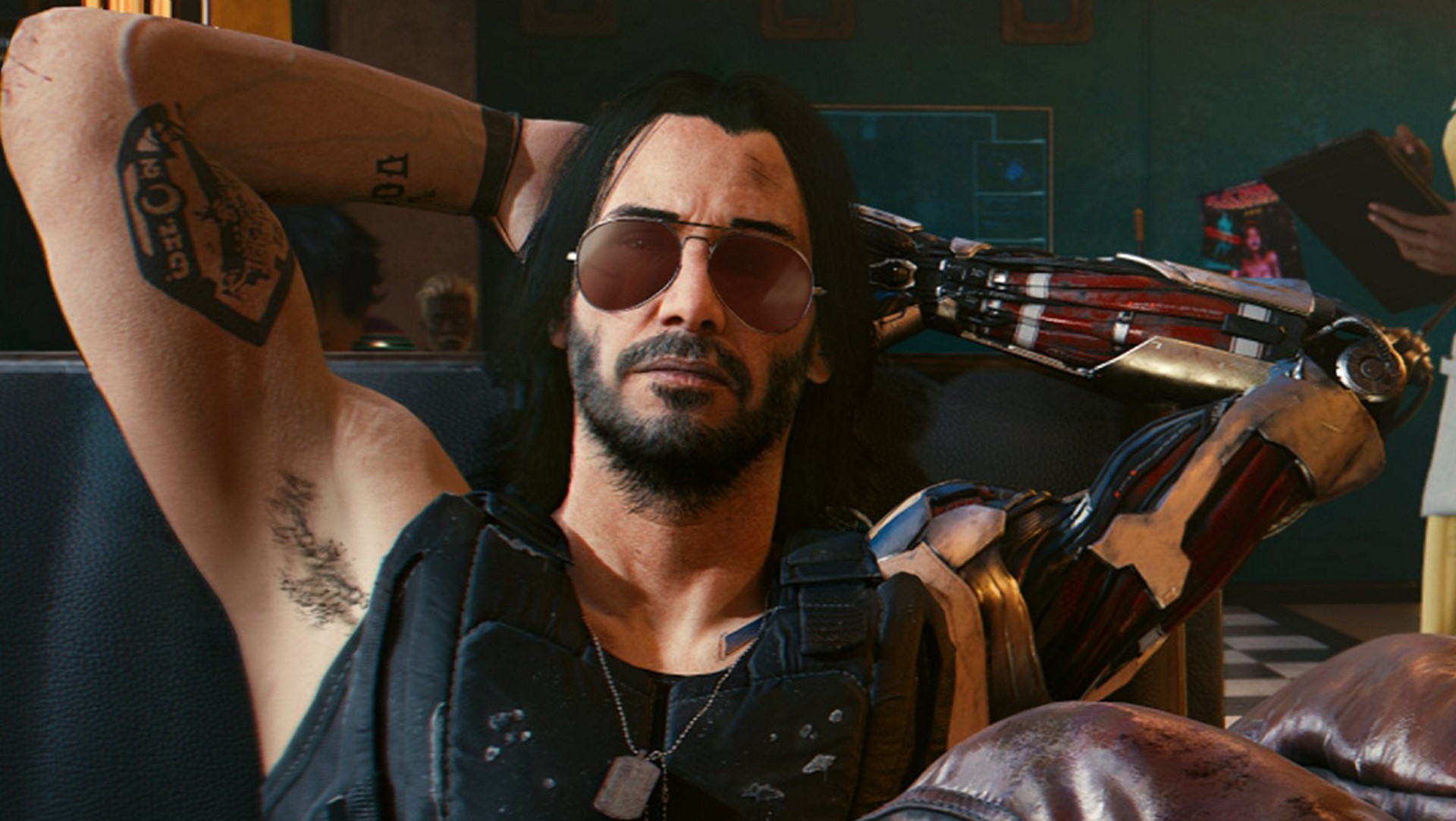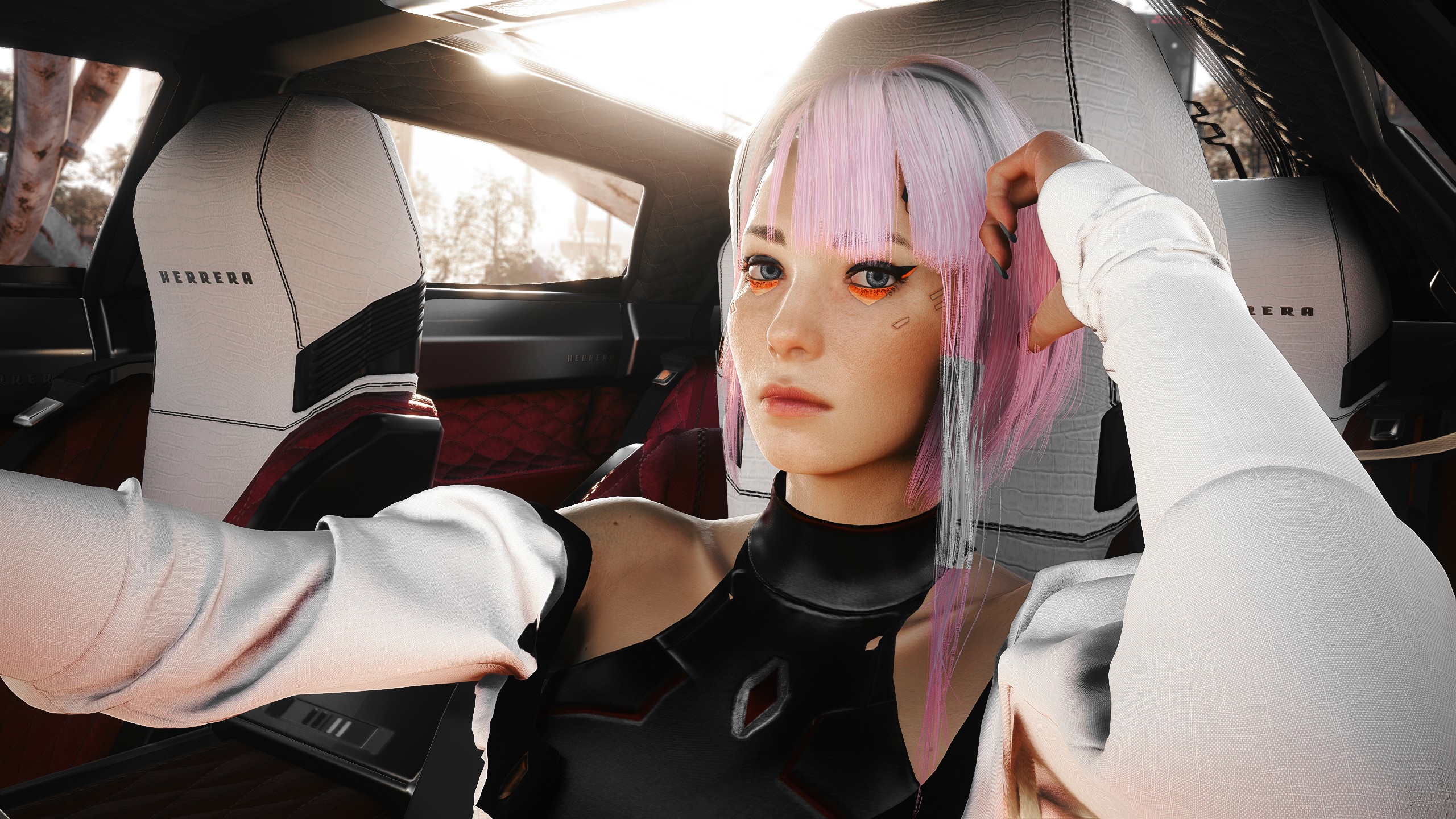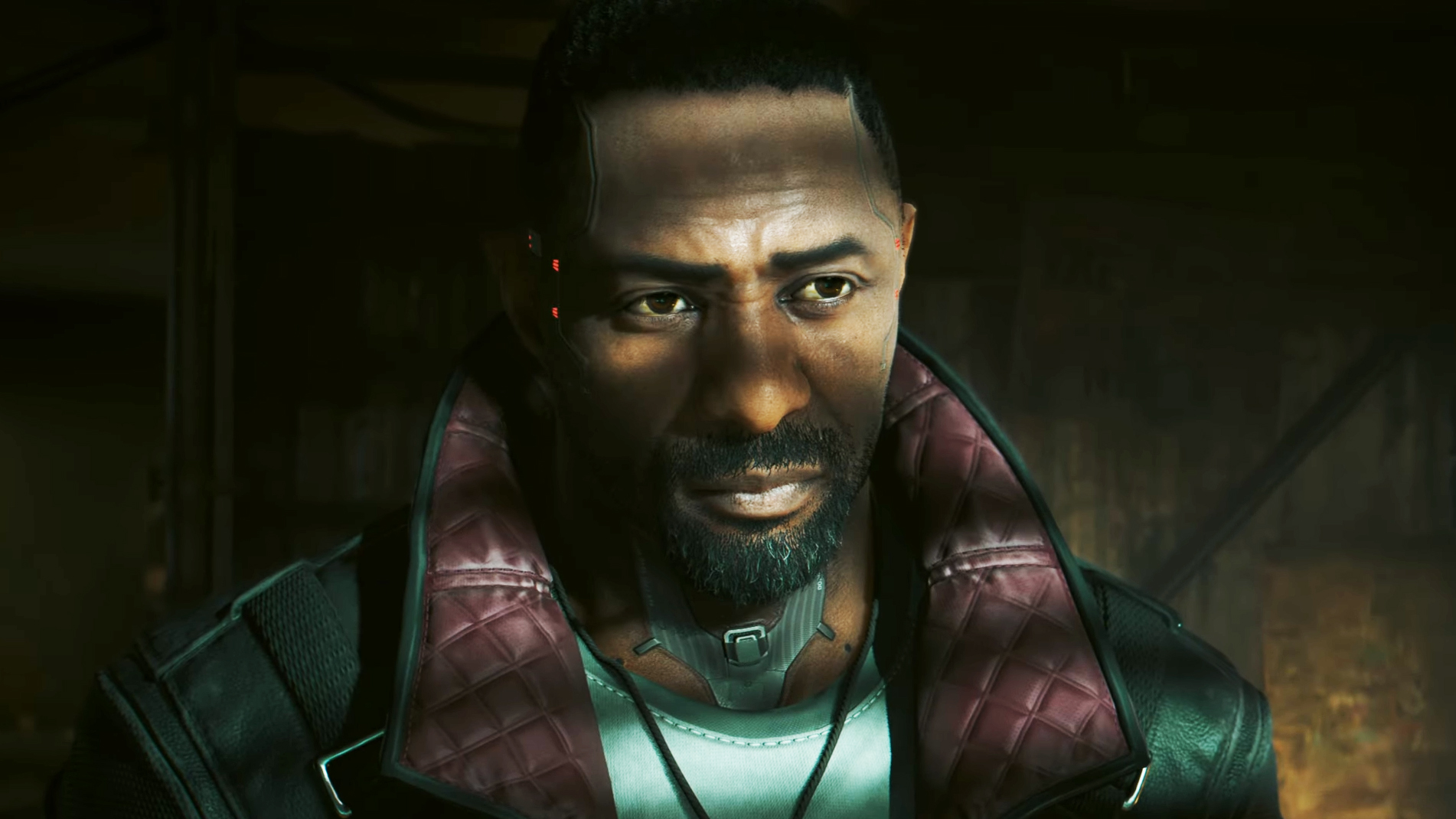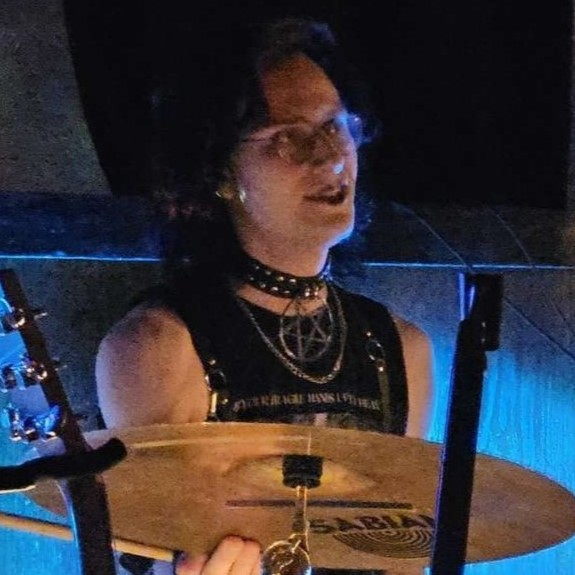Phantom Liberty is Cyberpunk 2077's last chance to not just be good, but great
You can’t go 10 minutes in Cyberpunk 2077 without finding something from somewhere else.
You can’t go 10 minutes in Cyberpunk 2077 without finding something from somewhere else.
The bike from Akira. The bike from Ghost in the Shell. Roy Batty from Blade Runner. Terminator. Demolition Man. The Matrix. All these things gone, like tears in rain. If you want one so bad, then steal one yourself. The sky was the color of television, tuned to a dead channel. It’s narratively claustrophobic, like being trapped inside the hemorrhaging brain of a college freshman.
Cyberpunk's marketing was punctuated with a firm insistence that it was "a mature experience intended for mature audiences" (because you could kill people and sometimes have sex), but its writing and world ultimately fell short of yet another series of pre-release promises. With the release of Cyberpunk's first and only planned expansion, Phantom Liberty, happening later this year, I went back to Night City to dust off my old English minor, rip up the cyber-flooring, and reflect on the narrative foundation CD Projekt Red has laid.
For a lot of players, myself included, 2077 really impressed with the romance options, though I was left deeply wanting in how the game portrayed sex and gender in the uncomfortably near future. I’ve been thinking a lot about the Panzer in Panam’s quests—probably the most I’ve ever thought about a mandatory tank segment in a first person shooter. Syncing nervous systems through a janky MILITECH targeting OS sideloaded into a tank and feeling each other through the computer code isn’t just an intimate moment for V and Panam; it helps contextualizes the bonds of the Aldecado veterans, painting a black portrait of service in the Unification War, of military cyberware-induced orgasms and neural whiteout in tin cans under the beating California sun.
In stark contrast to those quests' thoughtful narrative is the “don’t ask, don’t tell” approach to gender Cyberpunk 2077 takes as a whole, a baffling rigidity given the fundamentally queer experience of having Johnny Silverhand living inside your head. If you’re playing as a femme V, he overwrites your gender like it’s on an SD card and wants to make your body his. It’s not something the main quest ever really acknowledges—how this straight-coded brain dude is privy to all your deepest thoughts and desires.
I can’t escape the feeling that if 2077’s main quest was a novel in the style of its genre forebears, that this unspoken tension would manifest as powerful and evocative subtext. I’m not asking for Confessions of a Cyber-Mask or anything here, but the failure to meaningfully explore sex becomes all the more glaring when contrasting 2077 against the backdrop of cyberpunk fiction it’s pulling from. Phantom Liberty’s narrative would really benefit from a little more uncomfortable introspection, both in how it tackles sex and violence.
In Blade Runner, when Deckard shoots Zhora, recall the incredible use of contrasting audiovisual elements. You have the explosive cracking of Deckard’s handcannon, the wispy synth keys that invoke film noir brass, the shattering glass refracting and recontextualizing LA’s gaudy neon into something angelic, the tragic weight of this life dragging down Deckard’s face.
Keep up to date with the most important stories and the best deals, as picked by the PC Gamer team.
Folks, I am a strong proponent of videogame headshots, but Phantom Liberty giving some serious weight to death in its narrative would go a long way in thematically connecting Cyberpunk to the works that it loves to reference.

Cyberpunk 2077 lifepaths
Cyberpunk 2077 romances
Cyberpunk 2077 endings
Cyberpunk 2077 mods
Cyberpunk 2077 cheats
Taking a cue from police training videos, firefights are your primary way of interacting with Night City and its denizens. The most dangerous city in America is a fertile breeding ground for sin befitting punishment, but in retrospect it’s striking just how much emphasis is placed on Cyberpunk’s pretty okay shooting. Yeah, it’s great that they’re finally getting around to adding vehicle combat in Phantom Liberty (after modders already took care of it) but the prospect of even more shooting isn’t what I want out of Cyberpunk anymore. I’d love to see a greater emphasis in the expansion's quests on skill checks and non-violent outcomes.
2077’s balance throws the relationship between combat and narrative quests into a weird place, as you’re very rarely truly outclassed by your foes, ironically rendering gunfights as the default path of least resistance for problem solving. In contrast, Fallout: New Vegas allows me to take a heavy-handed approach to problems and blast my way through a narrative heavy quest, but it also provides options for dialogue based conflict resolution. Even if your Courier is the shoot first, act questions later type, the reputation, perk, and skill systems are all meaningfully integrated in dialogue that can be drawn upon naturally. It really helps to sell the idea of a living, breathing world, one that doesn’t break into dozen body count shootouts over minor property or turf disputes.
2077’s dialogue-centric quests were the highlight of my experience, and some standout stories like the Ray Bradburry-esque Sinnerman quests are the kind of meaningful side content that Phantom Liberty can hopefully deliver, ideally with some more varied, branching dialogue trees.

New music and radio stations are a desperately needed addition now that I'm three playthroughs deep, but the role of music in 2077 is a bit at odds with itself. Despite having one of the best licensed soundtracks in gaming period, it stands out for being anachronistic, with feet firmly planted in our time and not Night City's. Take the Maelstrom-affiliated Totentanz club with their just-about-cyberpsycho headliners Tinnitus, for example: You’ve got this whole build up, breaking down how Maelstrom's drug operations pivot around this club because Tinnitus apparently goes so insanely hard, and then you get there and it’s regular sounding industrial techno. The so-called freaks and sickos up all night at Totentanz straight up couldn’t cut it at a 2023 warehouse rave.
This highlights one of 2077’s knottiest issues, where its narrow idea of cyberpunk is so rooted in the established works of decades of old media that it’s blind to where culture has moved since. Even then, looking at the original source material and what it was actually trying to say could have helped alleviate this issue of cultural and mechanical blinders. Imagine the type of music that could exist in a world where all the physical limitations of playing an instrument are gone—would we really still be playing or making music in 4/4 time?
Samurai’s songs could be effortlessly covered by novice musicians today, making Johnny Silverhand and his music in turn resemble less of a rockerboy revolutionary and more of a dad rock reactionary. Phantom Liberty could really step up with a more experimental OST and curated selection of licensed music, exploring the sounds of the near future.

Idris Elba joins Cyberpunk 2077’s cast as Solomon Reed, an agent for the New United States of America. Solomon is V’s lifeline in a spy thriller-esque plot with huge implications for the future of Night City’s independence.
Speaking of Johnny, he’s back, in engram form. In our review, James Davenport called Silverhand out for being marred by inconsistent focus and characterization. The flashbacks are a good example of this inconsistency—Johnny’s portrayal in flashbacks as a serious alcoholic with a genuine emotional immaturity is so at odds with this contrasting image of cool guy brain ghost Keanu Reeves Johnny that it can feel like the narrative is really losing track of what it wants to be. Is Johnny supposed to be this voice that pulls the player towards escalating acts of violence and destruction, contextualizing the player’s actions as the gradual death of V’s soul and the takeover of Johnny’s engram? Or is Johnny a distinct entity, something that can be pulled out of this self-destructive spiral, partitioned and lived with?
These questions are sidestepped in lieu of a brain tumor that sounds Duke Nukem. With Reeves returning to voice Silverhand in 2077, I’m really holding out for a more nuanced portrayal of our favorite domestic terrorist, ideally asking some more questions about how much of V is even left.
Phantom Liberty’s add-on structure means it can only do so much to alleviate the sores of Cyberpunk 2077’s biggest narrative and structural issues, though CD Projekt Red’s success with the Witcher 3 (an actual mature experience intended for mature audiences) has me anxious to see where that series will go next. We’re now years behind the nightmarish launch of the base game, and the massive success of the brilliant Cyberpunk: Edgerunners shows that fans are eager for personal, introspective stories.
I sincerely hope that CD Projekt Red has noticed that when people talk about 2077, they’re usually talking about Panam, Judy, River, the Peralezs, or any number of characters whose quests didn’t end with a gunfight.

Nova Smith is a freelance writer based out of Alberta, Canada. Nova's grab bag of non-gaming interests and passions includes Japanese mecha anime, miniature painting, as well as history, literature, and classical music. Nova also moonlights as a bureaucrat and amateur historian.

